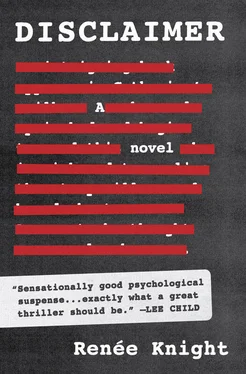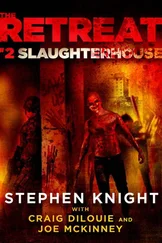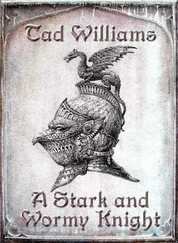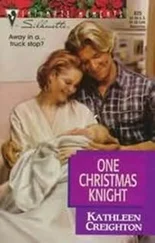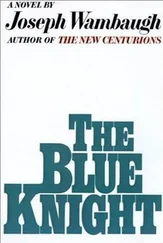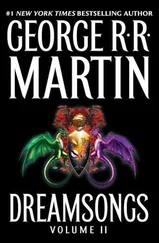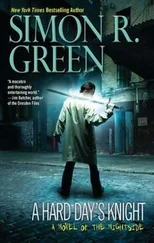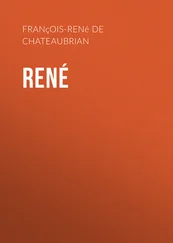She looks back at the house and tries to imagine how it must have been once. A young couple, a small child, their first home together. A cared-for garden, sunshine. A paddling pool? A picnic on the lawn? But this is her memory. It does not belong to this house. She is remembering herself and Robert with Nick when he was little, when he was very little. Before that trip to Spain. Nick jumping in and out of a paddling pool, her crouching down by his side, him naked, gleeful, wielding a wooden spoon and Tupperware which he banged like a drum. Her memory. But she imagines that Stephen and Nancy Brigstocke had moments like that in this garden with their little boy. Poor them, poor them, she thinks. She has no anger for either of them anymore. God knows they suffered. She is even grateful to Stephen Brigstocke. He sat opposite her and listened to her story. He didn’t call her a liar. He didn’t make her prove her innocence.
She went alone to meet Stephen Brigstocke’s solicitor; she didn’t tell Robert about the will until later. It was an odd meeting: the solicitor lacked curiosity, didn’t ask anything about her relationship with his client even though the will had been changed only a few months before. All quite straightforward, he said to describe Stephen Brigstocke’s last wishes. She said nothing. It was only when she stood up to go that he handed her a letter. He told her his client had asked him to put it directly into her hand. She didn’t open it then — it took her a few days to pluck up the courage to read it.
It was a faltering, awkward letter, hard to imagine it had been written by a man who’d had a career teaching English. He didn’t want his “gesture to feel like another assault.” He didn’t want her to be “burdened by my legacy.” He assumed she would sell both properties, and his hope was that the “money could be used to make your life and your family’s easier.” He was careful not to use the words “compensate” or “compensation.” He finished up by saying that by the time she received this, his “pain would be over” but he wanted her to know: “I am aware that you and your family must continue to live with the pain I inflicted on you.” He ended: “I hope you can forgive my lack of courage.” She puzzled over this. Was he calling himself a coward for killing himself? Or because of the negative he enclosed in the letter which he should have been brave enough to give her in person? A negative which had never been developed, he explained. Dismissed as a dud by both him and his wife. It was folded into the heart of his letter. “… I enclose it for you now.”
She holds the small brown square up to the light: shades of darkness with Catherine, a smudge in the foreground, an unrecognisable blur. The feeble winter sun moves behind a cloud, denying her enough light to see the ghost in the frame, but she knows he is there. Stephen Brigstocke searched through the negatives for his own son, but instead he found hers.
He would have seen and heard everything from his position in the open doorway. The door which she thought had stayed closed. The door behind which she’d believed he was asleep. But he had got out of bed and opened the door. He was standing looking into the room. The only light in the negative, a small white figure, unmistakeable once you know he is there. A little ghost who appeared, then disappeared again without anyone knowing.
She has studied it over and over, securing it on a light box, squinting at it through a magnifying glass, just to be sure. He would have heard everything too: her fake groans of pleasure. He didn’t say a word. He didn’t call out to her. He closed the door again and went back to bed, too frightened and shocked to speak. Perhaps he lay there for a while, hiding under the bedclothes, trying to make sense of what he had seen. Perhaps he woke the next morning and thought he had dreamt it. His child’s brain erased the memory of what he saw and heard that night. But it has always been there, this image and memory of his mother. An alien mother who he could never quite trust, never quite believe in. In that hotel room in Spain all those years ago she had tried to imagine what it would do to her son if he had seen what was happening to her. He had seen and heard. And all through his growing up the signs were there, but she had failed to recognise them.
Yesterday Nick saw the negative for the first time. Catherine feared she’d made a mistake and wished she hadn’t shown him.
“I don’t remember it… I don’t remember anything,” he said. He shook his head and studied his small self, but he couldn’t get back into that child’s head. She put her hand over his as tears gathered along his eyelashes. He tried hard not to cry, holding his breath and swallowing down a sob. She reached over, expecting him to resist but he came into her arms and rested his head against her chest, allowing his tears to fall. He allowed her to stroke his back and hold his head, and she was overcome with gratitude for the chance he was giving her to get to know him at last.
The following people are my “without whoms”—thank you all so much.
Richard Skinner of the Faber Academy for his brilliant guidance and to my fellow Faberites of 2012 for unstinting support; brave friends Nic Allsop, Meera Bedi, Claire Calman, and Beth Holgate who read and encouraged; Tiana Brooke for her inspiration; all those at HarperCollins for ensuring the book is as good as it could be; Felicity Blunt for her intelligence and her kindness, and to all those who work with her at Curtis Brown; and finally to my husband, Greg Brenman, for popping me in the shed with a laptop and suggesting I get on with it….

RENÉE KNIGHTworked for the BBC directing arts documentaries before turning to writing. She has had TV and film scripts commissioned by the BBC, Channel Four, and Capital Films. In April 2013 she graduated from the Faber Academy “Writing a Novel” course, whose alumni include S. J. Watson. She lives in London with her husband and two children.
Discover great authors, exclusive offers, and more at hc.com.
